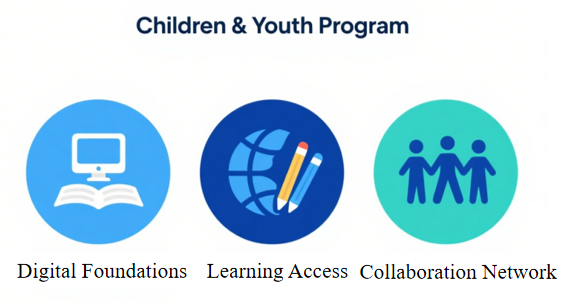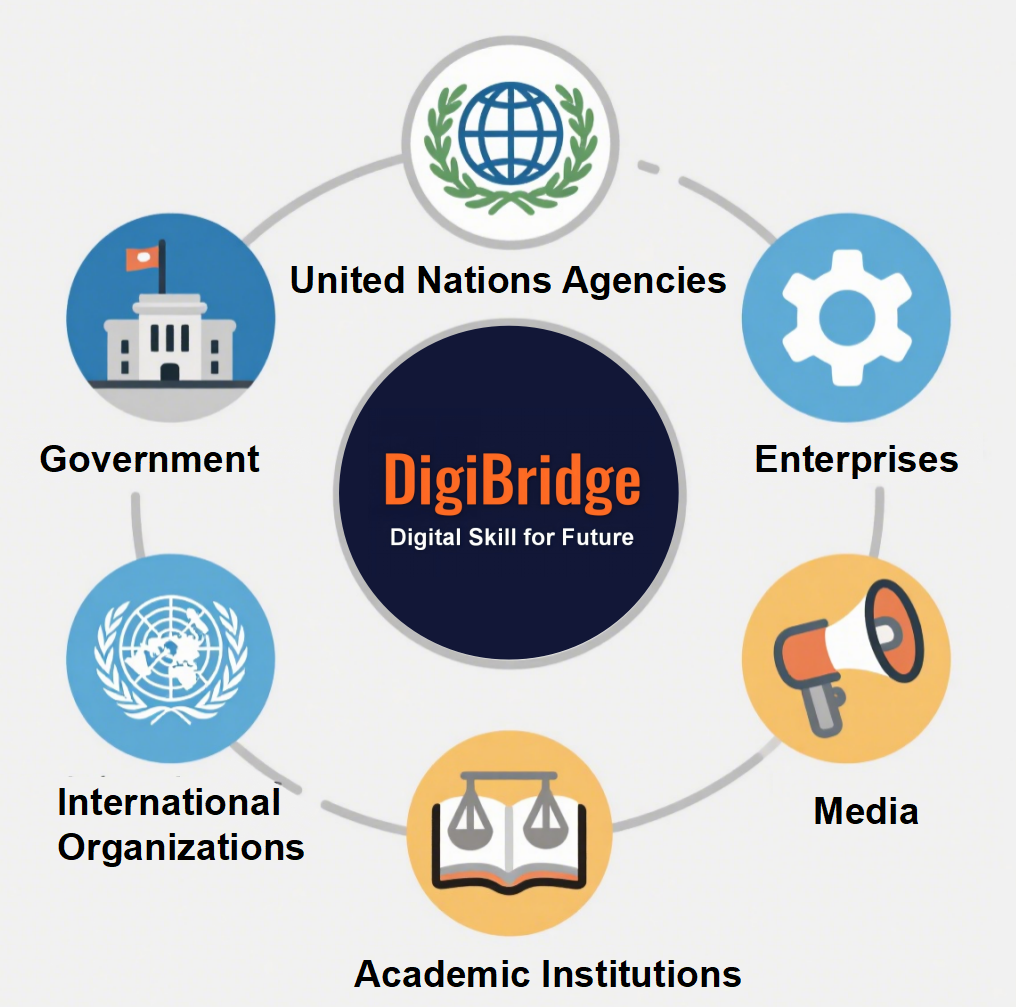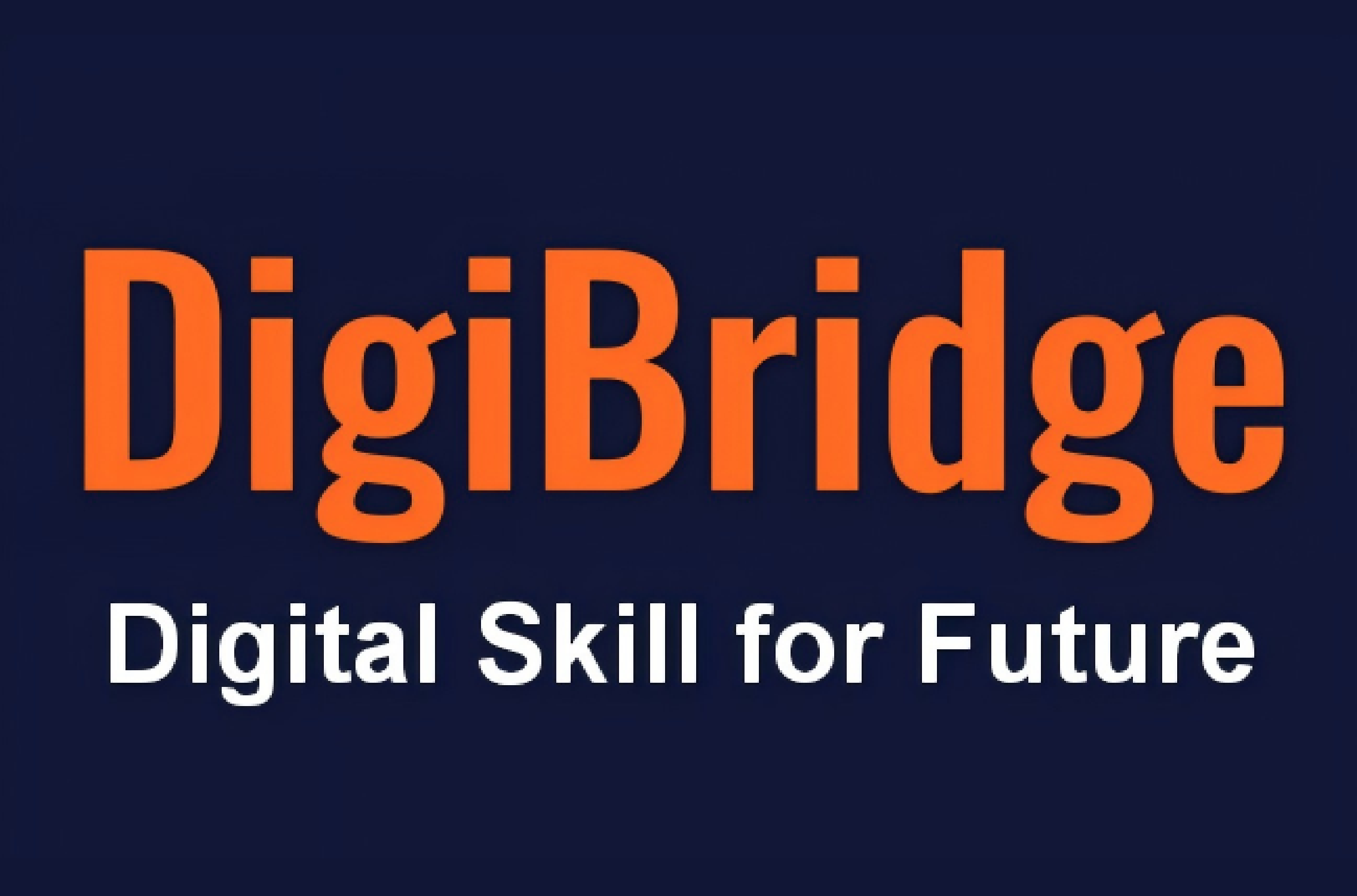
DigiBridge Talent Framework
The DigiBridge program is an integral part of the WDTA’s global strategy. It builds a multi-tiered structure encompassing Academician, Experts, Digital Professional , and Digital Citizens, enabling individuals from diverse backgrounds to progress and thrive in the digital era. The framework supports open and flexible growth paths, promoting both digital literacy and professional development on a global scale.
Academician:Global Think Tank on Digital Governance Tech ethics formulation / Future foresight.
Experts:Industry Researchers / Standards Developers Cross-sector guidance / Project leadership.
Digital Professional:Core workforce in digital industries DigiBridge certification / Career empowerment.
Digital Citizens:Foundational users & learners Digital literacy promotion.
Digital Leadership
Responsible Leadership for the Future
Targeted at tech executives and industry leaders, this program enhances strategic insight, global collaboration, and governance capabilities. It also engages participants in shaping a “Digital Talent Competency Framework” to drive inclusive talent development.
I.CAIO (International Chief AI Officer) is a global initiative to cultivate future-ready talent in AI policy, technology strategy, and innovation.
Certified Strategist: Aimed at policymakers and corporate executives, focusing on AI strategic thinking and governance capabilities.
Certified Innovator: Aimed at young innovators and entrepreneurs, product managers, and college students, it empowers the entire process of AI commercialization from 0 to 1.


Future-Ready Digital Skills
Advancing Digital Competitiveness
DigiBridge fosters the development of globally competitive, future-oriented digital talent by building an integrated ecosystem of training, credentialing, employment, and international recognition. The initiative aims to strengthen individual capabilities and workforce resilience while supporting sustainable growth in the digital economy.

Underserved Groups
Technology Empowerment and Social Inclusion
This program targets developing countries by offering digital literacy and inclusive workforce development courses. It launches public-benefit training initiatives aimed at "bridging the digital divide," enabling individuals from diverse backgrounds to acquire essential digital skills and actively participate in digital transformation.
By leveraging technology to promote equitable employment, the initiative expands opportunities for underserved populations—such as women working from home, persons with disabilities, and the elderly—ensuring broader access to the benefits of digital inclusion.

Children & Youth
empowers the next generation with digital skills and global awareness
By linking global tech resources with local needs, the program ensures equitable access to learning and fosters curiosity, critical thinking, and creativity among children—preparing them to become responsible digital citizens.

Leveraging AI to Bridge the Digital Divide
As a core enabler of the digital era, artificial intelligence is becoming accessible to all through the DigiBridge initiative.
We offer a complete empowerment pathway—from foundational AI courses to agent development, testing platforms, and ecosystem deployment—equipping individuals not only with technical skills but also with the tools to innovate and pursue their aspirations.
(1)(1).png)
WDTA Education Committee
"Education is the premise of progress in every society, in every family."— Kofi Annan, the 7th Secretary-General of the UN
"To harness the power of generative AI in education, we must balance innovation with equity—ensuring technology enhances human potential while leaving no learner behind."— Tshilidzi Marwala,President of the United Nations University
"DigiBridge is a timely and impactful initiative that empowers individuals and communities with the digital skills needed for an inclusive and sustainable future. I fully support this effort and encourage stakeholders from all sectors to actively engage and contribute to its global mission."— Muhammadou M.O. Kah, Chair of the UN CSTD, Vice Chairman of the WDTA Education Committee

Engage in DigiBridge
United Nations Agencies and Government:Implementation of Inclusive Projects,Policy Support
Enterprises:Talent Capability Framework,Crowdsourcing works for Underserved Groupss,Technology or Funding Contributions,Course Development,AI Platform Capabilities
Academic Institutions:Course Development,Course Review
International Organizations:Standards Development,Course Review
Media:Influence and Outreach









